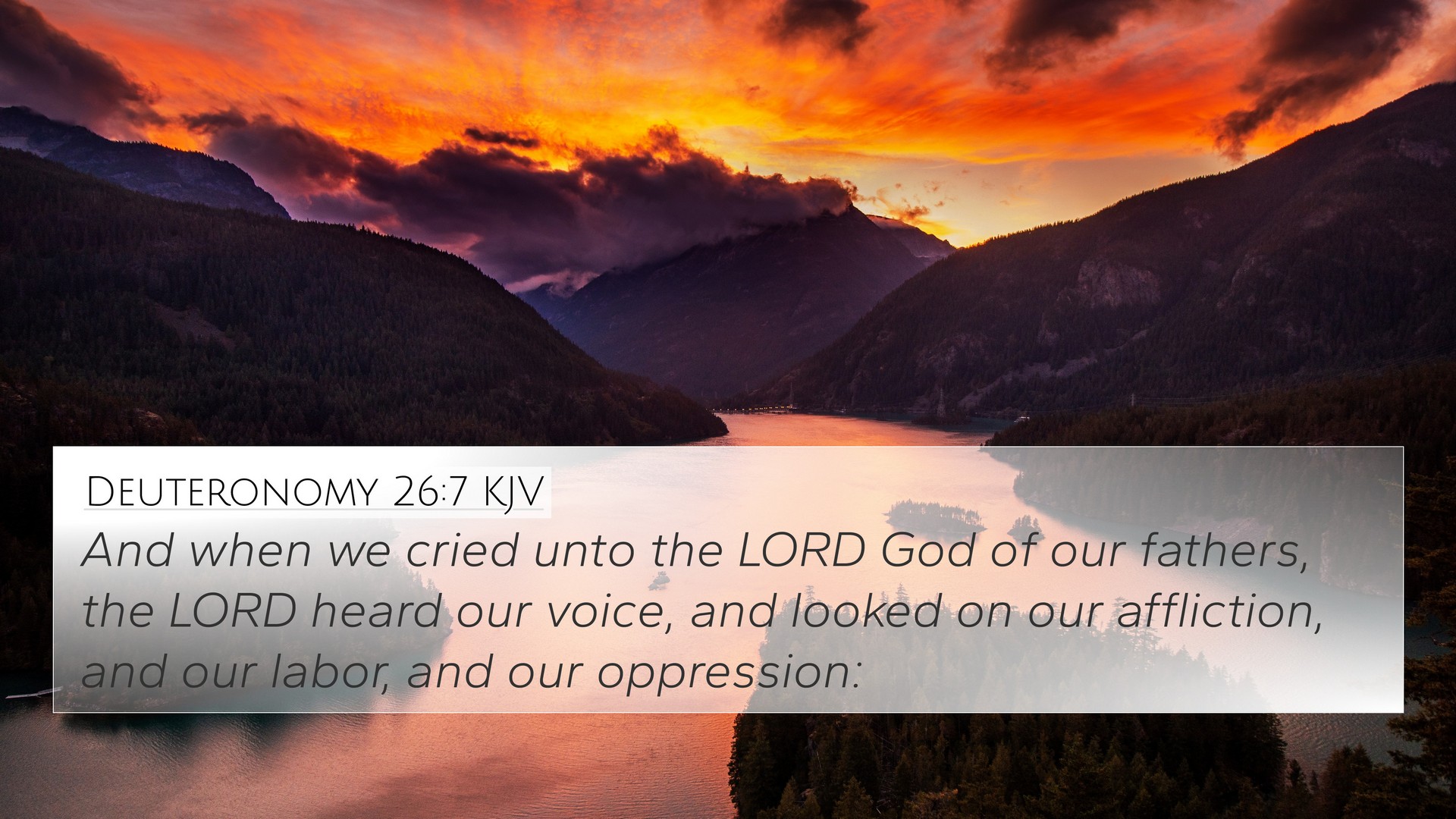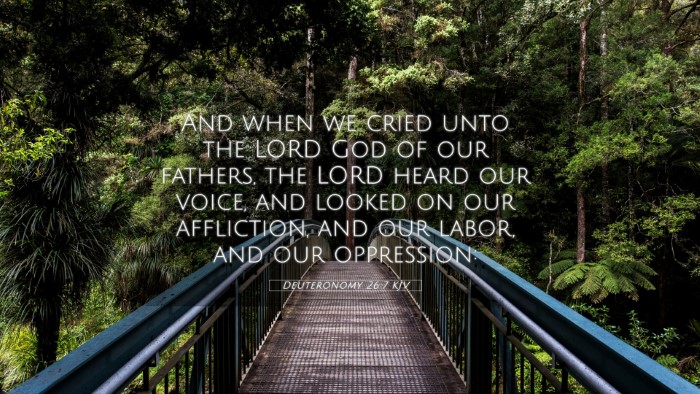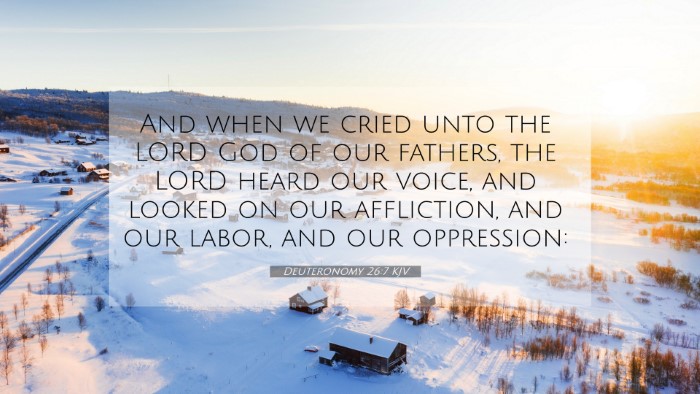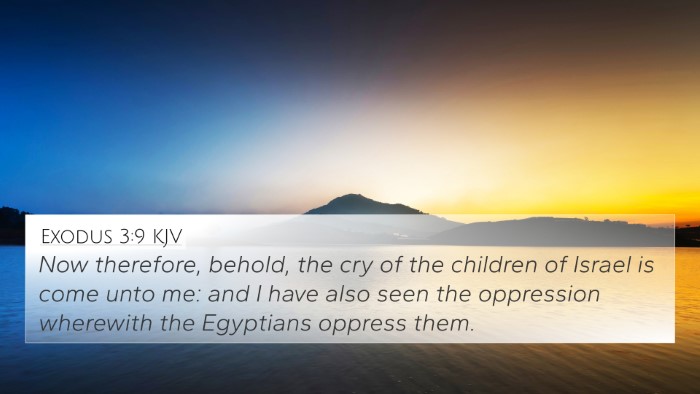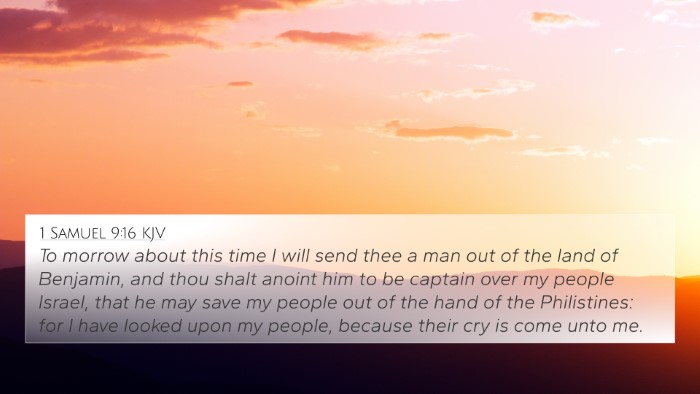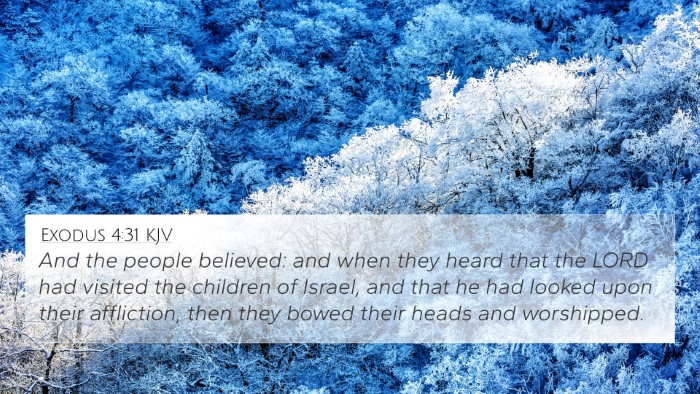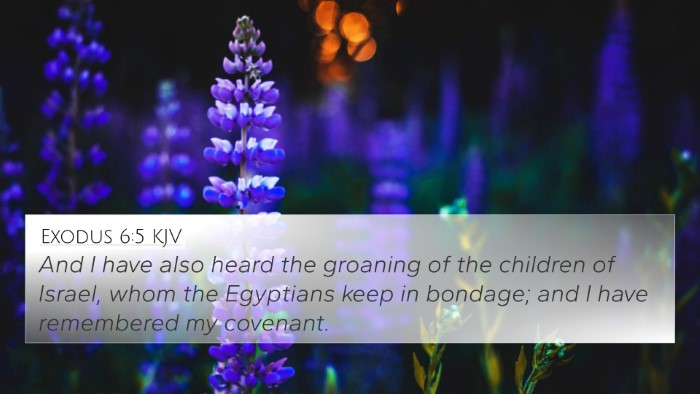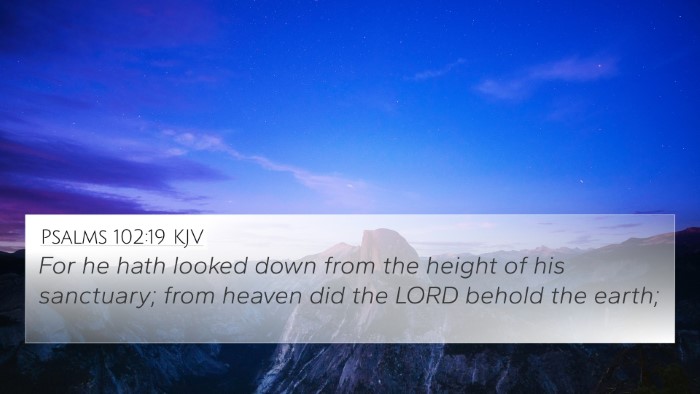Understanding Deuteronomy 26:7
Verse: "And when we cried unto the LORD God of our fathers, the LORD heard our voice, and looked on our affliction, and our labour, and our oppression."
Summary
This verse encapsulates a pivotal theme in the narrative of the Israelites' deliverance from Egypt, emphasizing God's faithfulness in responding to the cries of His people during their time of suffering. Each element of this verse reveals profound theological truths about God's compassion, His attentiveness to human suffering, and the historical context of Israel's hardships.
Commentary Insights
- Matthew Henry: Henry emphasizes the importance of the Israelites’ cry as a reflection of their deep need and a catalyst for divine intervention. He highlights that their affliction was not unnoticed by God, which illustrates His omniscience and benevolence.
- Albert Barnes: Barnes points out the historical significance of the verse. The LORD's responsiveness to their plea not only assures them of divine assistance but also serves as a reminder for future generations of God's historical faithfulness.
- Adam Clarke: Clarke elaborates on the nature of oppression faced by the Israelites. He connects their heartfelt pleas with the broader theme of covenant and grace, emphasizing that their suffering was integral to their identity as God's chosen people.
Thematic Bible Connections
This verse connects with several key themes throughout the scriptures, illustrating God’s faithfulness in times of distress, and offers numerous opportunities for cross-referencing within the Bible's narrative.
Cross-References
- Exodus 2:23-25: The Israelites' cry under oppression in Egypt and God's awareness of their suffering.
- Psalm 34:17: "The righteous cry, and the LORD hears, and delivers them out of all their troubles."—echoes God's readiness to respond.
- 1 Peter 5:7: "Casting all your care upon him; for he cares for you."—reinforces the idea of casting burdens upon God.
- Isaiah 41:10: A reminder of God's support and comfort amid distress, reminding believers of His unwavering presence.
- Luke 18:7-8: The parable of the persistent widow emphasizes God's responsiveness to persistent prayer.
- Romans 8:28: "And we know that all things work together for good to them that love God"—God's sovereignty over suffering for the good of His people.
- Philippians 4:6-7: Encouragement to present requests to God assures believers of His peace that transcends understanding.
- Matthew 7:7: The command to ask, seek, and knock parallels God's eagerness to respond to the cries of His people.
- Revelation 21:4: God's promise to wipe away every tear shows His ultimate concern for human suffering.
- Jeremiah 29:12: "Then you will call upon Me and go and pray to Me, and I will listen to you"—a reiteration of God's attentiveness to the prayers of His people.
Building a Comprehensive Understanding
In concluding the analysis of Deuteronomy 26:7, it is essential to recognize the significance of scriptural cross-referencing as a means to deepen one's understanding of the Bible. By linking Bible scriptures, one can uncover the intricate tapestry of God's covenant with His people and the overarching narrative of redemption.
Tools for Bible Cross-Referencing
Utilizing a Bible concordance or a cross-reference guide can enhance your study of inter-Biblical dialogue, allowing you to identify connections between Old and New Testament teachings.
Conclusion
Deuteronomy 26:7 serves as a reminder of God's attentiveness and compassion towards those who suffer. The various cross-references not only support the understanding of this verse but also reveal thematic connections throughout the scriptures. Engaging with these connections through tools for Bible cross-referencing enriches the study of God's Word, fostering a deeper faith and awareness of His ongoing presence in our lives.
